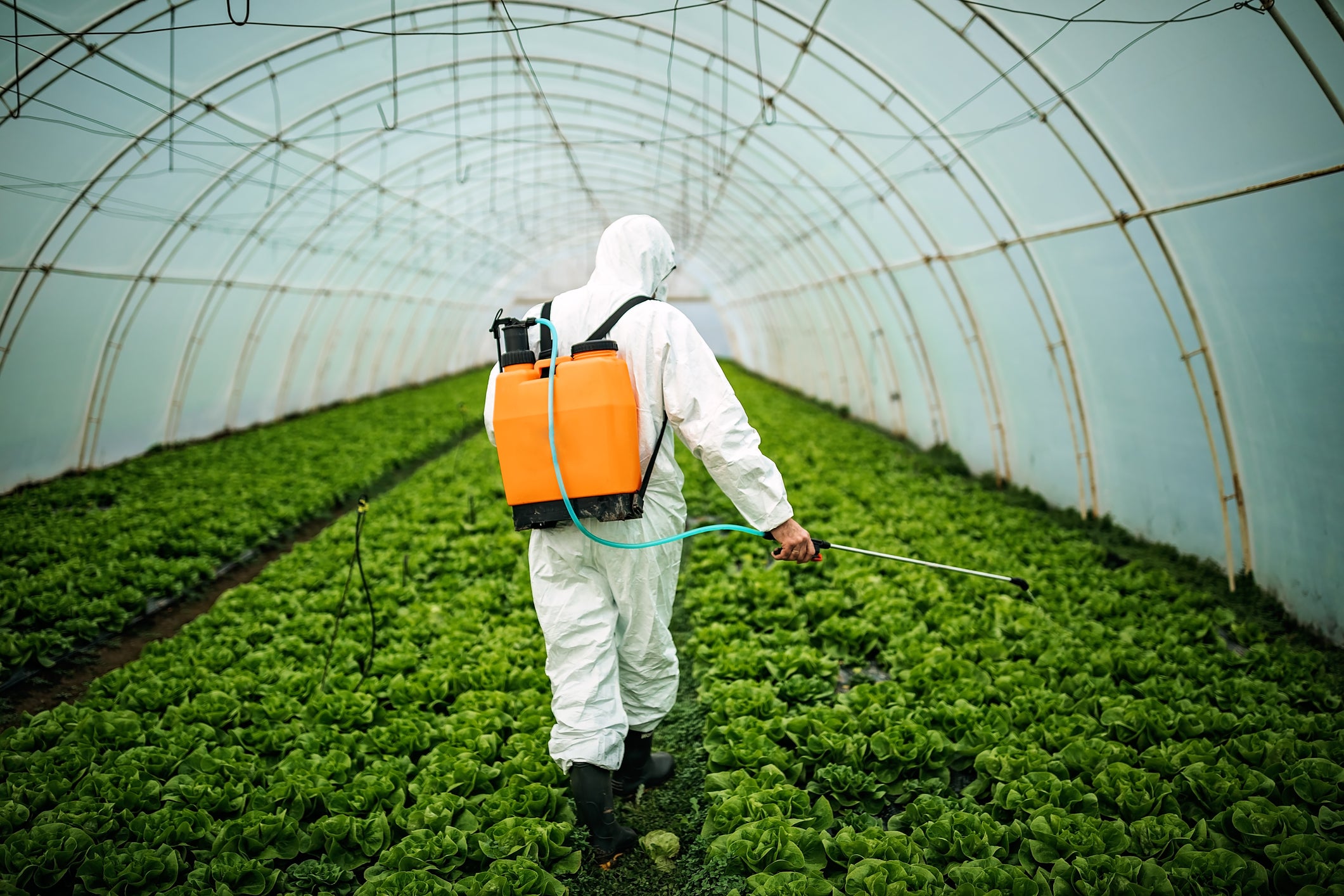UK considers using Brexit ‘freedom’ to allow pesticides banned in EU on food
American agricultural lobby groups had criticised some of the import bans

The government is considering using its new Brexit regulatory freedom to allow pesticides banned in the EU on food imported to the UK.
Brussels announced it was banning 10 pesticides on imported fruit and veg in February last year and the UK was at the time widely expected in to follow suit. But over a year later the Department for Environment, Food, and Rural Affairs (Defra) says no decision has yet been made on whether Britain will follow the EU or continue to permit the chemicals on food.
All the pesticides have not been allowed for use by domestic farmers in either the UK or EU for some years, but were still allowed for imports from outside the bloc subject to “maximum residue levels” checked by border staff.
But last year Brussels regulation 2021/155 cut the maximum residue levels (MRLs) for all the chemicals to the lowest possible level allowed under EU law – effectively banning their use on food destined for the continent.
The change was announced by the European Commission in February 2021 and took effect in September last year, but the UK has not yet decided whether to follow suit for most of the chemicals.
The chemicals in question are carbon tetrachloride, chlorothalonil, chlorpropham, ethoprophos, fenamidone, methiocarb, propiconazole and pymetrozine. Two further chemicals, dimethoate and omethoate, were also banned by the regulation and have also since been banned on food imported to the UK.
The eight chemicals that are still permitted on imports to the UK but not EU were banned for a variety of reasons: chlorothalonil, a fungicide, is considered potentially carcinogenic and is judged to be a possible groundwater contaminant.
Propiconazole, another fungicide used by American rice farmers, is considered “toxic to reproduction”, meaning it is classed as potentially dangerous to babies in the womb. Meanwhile chlorpropham, a chemical used to prevent potato sprouting by American farmers, is banned for domestic use in the EU and UK due to toxicity concerns.
The widespread use of the chemicals by US farmers and the foot-dragging by the UK government has raised eyebrows among campaigners, who are suspicious that the UK may be concerned banning the pesticides could jeopardise a future trade agreement with the US and other countries with lax standards.
The US rice industry described the ban on propiconazole as “frustrating” in April last year, while the country’s potato industry has described steps to restrict chlorpropham as “disappointing”.
The Defra press office declined to provide a quote for this article but confirmed that no decision had yet been taken on the eight chemicals that were as yet not banned for import to the UK. The department did not give a timescale but said decisions would be made in “due course” and independently of the EU.
Defra highlighted that it had taken action equivalent to the EU import ban on two of the chemicals, dimoethoate and omethoate, and said that decisions about which pesticides to permit on food were based on robust scientific assessments.
Friends of the Earth campaigner Kierra Box told The Independent: “We’ve known for years that these pesticides pose health risks, which is why the UK already has some restrictions in place to limit residues of these chemicals on imported food.
“However, the EU has already tightened the rules, so why hasn’t the UK followed suit?
“Any suggestion that prospective trade deals with countries that commonly use these pesticides may have influenced delays to these reassessments would be deeply concerning.
“We mustn’t trade away health and environment safeguards for the sake of a few pounds or use the UK’s newfound ‘regulatory freedom’ to trash standards that protect people and planet, rather than raise them.”
An investigation by Greenpeace's Unearthed unit published in February found that British companies had shipped more than 10,000 tonnes of banned pesticides overseas in 2020, including propiconazole.
Greenpeace UK’s policy director Dr Doug Parr described the practice of exporting chemicals banned in the UK to be used overseas on food to be imported back to Britain as a “toxic boomerang”.
“Our European neighbours have realised that flogging abroad harmful pesticides that are banned at home doesn’t make sense,” he told The Independent.
“It makes even less sense if traces of those chemicals come back to the sender and on our dinner plate via imported food like a toxic boomerang.
“And yet the UK government continues to allow companies to export thousands of tonnes of highly toxic, banned pesticides while showing little appetite for restricting the amount of harmful chemicals in the food we import.
“Ministers should not let our environmental standards fall behind those in force across the Channel. Britain should be leading out in front by banning this toxic trade and promoting a healthier food system for people and nature.”
Join our commenting forum
Join thought-provoking conversations, follow other Independent readers and see their replies
131Comments